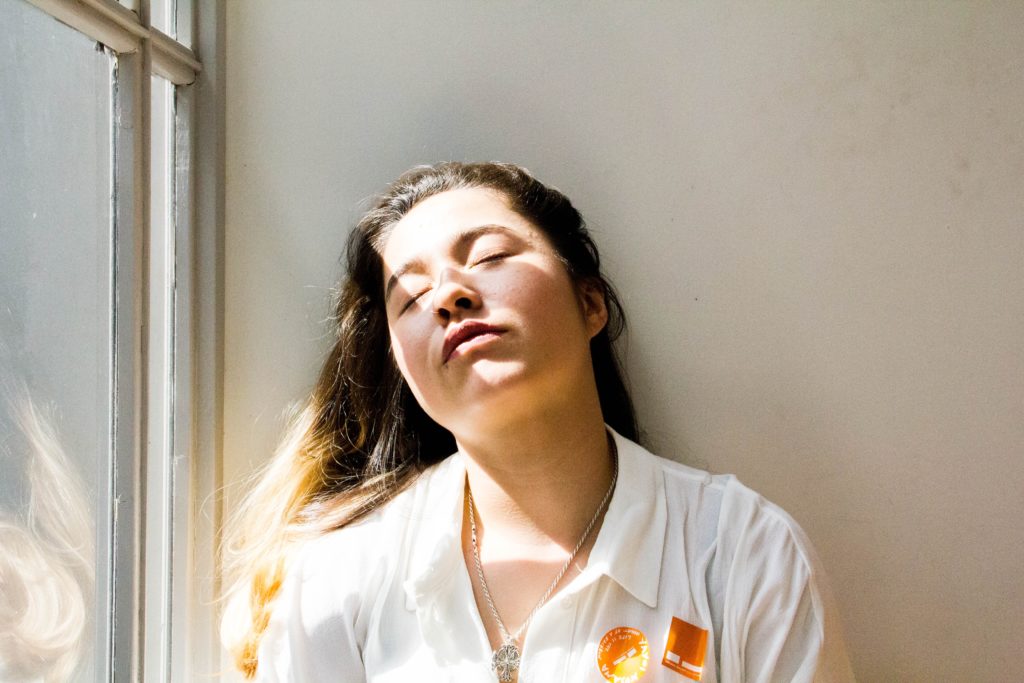
A cause and affect relationship that’s a recipe for profound misery…is there hope?
Jarrod turned over. The room was dark except for the light of the clock. 3:45AM glowed brightly in the darkness. Jarrod sighed heavily. It had been 5 hours since he turned off the light. Exhaustion weighed him down like lead.
He hadn’t slept more than an hour all week. Why does it have to be so hard to just get some rest?? Rage was growing in a slow boil in his chest… He was afraid of what he might do if something didn’t break this maddening cycle. Sometimes he wanted to explode from the frustration. Sometimes he wanted to give up and die.
Much of the time, just after he dropped off, an alarm of sorts sounded inside his head and woke him wide awake again…
What is life if it has to be spent like this?
Months. Years. A lifetime.
None of his medicines worked. None. He felt defeated just thinking about it.
He tried to count sheep. His mind wandered fretfully slamming him with accusations, fears, uncertainty…hopelessness. Despair.
Buuuuzzzzzzz !!!
5:30AM. His alarm. He only slept maybe an hour and a half.
There was no choice but to drag himself out of bed and force himself to face another day… he knew he just couldn’t go on like this much longer… in fact, he wouldn’t.
Life-Threatening Misery

It’s not hard to connect the dots between insomnia and suicide. If you’ve suffered from chronic insomnia, you know the wretchedness of staring at the ceiling and watching the hours tick by.
And the longer it goes on, the more you worry about how you’ll get through the next day on 4 hours of sleep…or three hours… then 2 hours. Well, an hour and a half.
Have you ever experienced unrelenting insomnia for several nights in a row? If you have, you know that just as you’re getting sleepy, hoping you’ll drop off, suddenly you wake with a start and realize you had fallen asleep and woke up only 3 minutes later! It makes you want to chew nails.
In fact, it’s so terrible that prisoners of war are forcibly prevented from sleep as a torture to break down their resolve.
It’s not hard to see that prolonged insomnia can lead someone to want to die. Nor is it far-fetched to consider that having a desire to stop living could keep you from sleeping.
So which comes first? Well, it’s hard to know.
Sleep Disturbance is Treatable
Researchers have found that insomnia is an independent risk factor for suicidal thoughts, but a factor that’s not etched in stone. Because this is something that can be changed. And when it is, it relieves its influence on suicidal behaviors.
Genetics can’t be changed. Environment is hard to change. But insomnia..? It can usually be treated.
In addition, research has shown that insomnia is a risk factor and predictor for depression.

Over 65% of adults with major depressive disorder report sleep problems. More than 90% of adolescents with depression seek treatment for disturbed sleep.
And among both adolescents and adults, those who seek treatment for problems with sleep experience more severe forms of depression than those who are depressed without sleep disturbance.
Insomnia Is An Independent Culprit
Traditionally, there has been an assumption that insomnia was a symptom of depression, but further research shows that sleep disturbance symptoms are experienced most often before the onset of depression, and continue longer after depression symptoms are relieved.
So is it the first symptom of depression that shows up long before other symptoms..? And the last to go after depression is resolved? Or is it a separate disorder that commonly accompanies other disorders?
You and I both know that when you go without sleep, or without enough sleep, 2-3 days in a row, it’s natural to find you’re more irritable and less able to control your mood.
When someone goes without sleep 5 days…or 8 days… their mental state becomes impaired, as well as coordination, cognition, and judgment. Often, at some point, they’ll finally sleep. Maybe for a few hours, maybe longer. And once they’re able to fall asleep once and remain asleep a few hours, they may have more success for the next few nights with more restful sleep.
Then the cycle begins again.
The Link Between Insomnia and Suicide Can Lead to Death
One recent study found that dysfunctional neuroplasticity may be to blame for insomnia. And that dysfunction can drive not only insomnia but other severe symptoms that are truly unbearable for you.
The theory is that neuroplasticity is a major mechanism in the cause of depression.
Neuroplasticity is the way the brain adapts to changes in the environment and to various stimuli.
Since sleep promotes synaptic neuroplasticity and a healthy ability to adapt and change, the lack of sleep reduces your ability to do that. Synaptic plasticity is also reduced in major depressive disorder.
Now think about this:

As many as 50% of people diagnosed with psychiatric disorders are never helped by medicines or therapies. Because of this, there’s been a need for a novel and advanced treatment to bring relief to their symptoms, as well as to their suicidal thoughts.
Ketamine, a glutamate modulator, restores neuroplasticity, and the adaptive ability that goes with it.
So it stands to reason that ketamine treatment can relieve both depression and insomnia. In fact, in a separate action, it can also erase suicidal thoughts in an hour or so.
Insomnia and Suicide
Stubborn long-term insomnia that doesn’t respond to medicines or therapy is not uncommon at all. But it contributes to your illness in ways that are so dangerous, it’s important to find effective treatment.
Suicidal thoughts are also life-threatening, and the longer they continue, the greater the risk to your survival.
If medicines and therapies haven’t relieved these symptoms, you may be a candidate for ketamine treatment. Ketamine treatment can restore your neuroplasticity and erase suicidal thoughts within 4 hours or less. Then, after that, you may find you can finally sleep.
At Innovative Psychiatry, patients walk out restored every week. They find they can do things they couldn’t do before, work through inner turmoil that they were unable to before, build relationships they lacked the energy and resilience to build before.
They can build rewarding lives and relationships.
And you can enjoy these breakthroughs, too.
Call us. You owe it to yourself to give your life and yourself the best advantage.

To the emerging of your very best self,

Lori Calabrese, M.D.